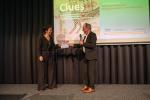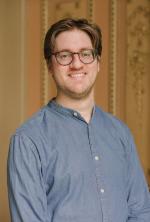.jpg?itok=cCkvM6nf)
Pilotproject Provenance Research on Objects of the Colonial Era (PPROCE)
Download the final report here.
Download the provenance reports here.
PPROCE was a joint initiative of the NIOD Institute for War, Holocaust and Genocide Studies, the Rijksmuseum Amsterdam (RMA) and the National Museum of World Cultures (NMVW), carried out under the direction of the NIOD and its in-house Expert Centre Restitution (ECR).
Project partners were the Open University, the Royal Netherlands Institute of Southeast Asian and Caribbean Studies (KITLV), Leiden University and the Reinwardt Academy. The project was carried out with the financial support of the Ministry of Education, Culture and Science of the Netherlands.
Results of the project
The results of PPROCE can be found in the report ‘Clues: Research into provenance history and significance of cultural objects and collections acquired in colonial situations’. The report is published in Dutch, English and Bahasa Indonesia, and addresses a diverse audience of policy makers, heritage professionals and other interested parties – in the Netherlands but also other parts of the world.
The report includes:
- A sketch of the background and principles of this pilot (chapter 1)
- A reflection on the theoretical and political dimensions of provenance research (chapter 2)
- Methodological recommendations with regards to provenance research (chapter 3)
- A Draft Assessment Framework for the assessment of research by an independent advisory committee (chapter 4)
- Recommendations regarding collaboration with researchers and heritage institutions in countries of origin, and policy concerning provenance research (chapter 5)
- Six essays with reflections of participating researchers, about various matters concerning restitution and provenance research
Apart from this – and this is the actual foundation of the report’s conclusions – 65 object from Indonesia and Sri Lanka were thoroughly researched, resulting in fifty provenance reports that can be downloaded here. Almost half of these objects, from the collections of NMVW and RMA, were selected in consultation with partners in Sri Lanka and Indonesia.
Presentation of the results and other publications
On March 17, 2022, the outcomes of the project were published, and the final report was presented to the State Secretary for Culture and Media, dr. Gunay Uslu. You can watch the event’s recording here.

After the project, a few of the provenance reports were published as articles in a special issue of The Newsletter of the International Institute for Asian Studies, entitled ‘Clues of Provenance: Tracing Colonialism and Imperialism through Museum Objects’. Jona Mooren and Klaas Stutje were guest editors.
On September 2, 2022 PPROCE-researcher Doreen van den Boogaart published an essay in Dutch newspaper De Volkskrant on the basis of her research about the canon of Kandy in the collection of Rijksmuseum.
In December 2022, the Rijksmuseum Bulletin published a special issue in which a number of PPROCE researchers presented their work. Klaas Stutje wrote an article about the diamond of Banjarmasin. Doreen van den Boogaart, Alicia Schrikker and Ganga Rajinee Dissanayaka published their research to a number of Sri Lankan objects. Caroline Drieënhuizen described the provenance of a Buddhist Vajrasattva statuette.
Backgrounds of the research
In the context of a broader international debate museums in the Netherlands are increasingly aware of the question as to the legality and fairness/justness of managing objects that entered their collections as colonial acquisitions. Knowledge of the provenance history of such objects is essential to answering this question, meaning that there is an inextricable link between policy development and scientific provenance research. Dutch museums consider conducting research into the provenance of museum collections to be a core task. Research into colonial collections is uniquely complex, however. One should for instance think of partly inherited colonial assumptions upon which these collections were gathered and catalogued, the one-sided nature of the available source material resulting from that, and differences in the cultural and political meanings of objects in (former) colonising and colonised countries. As a result, there is a strong wish in the Netherlands, arising from a sense of social responsibility, to research both these problematics and what is required for the further development of provenance research into colonial collections. The publications of PPROCE are a result of this wish.
Team composition
Team composition
The following people contributed to the realisation of the final report and the provenance reports:
Project leaders:
Ellen Grabowsky (ECR/NIOD) and Jona Mooren (ECR/NIOD)
Provenance researchers:
Marieke Bloembergen (project advisor, KITLV/Leiden University), Doreen van den Boogaart (ECR/NIOD), Caroline Drieënhuizen (Open University), Melle Monquil (ECR/NIOD), Tom Quist (NMVW), Alicia Schrikker (Leiden University), Mirjam Shatanawi (Reinwardt Academy) and Klaas Stutje (ECR/NIOD)
Project secretary:
Icha El-Achkar (ECR/NIOD)
Steering group:
Marieke Bloembergen (project advisor, KITLV/Leiden University); Francine Brinkgreve (NMVW); Menno Fitski (Rijksmuseum, from 2020); Martine Gosselink (Rijksmuseum, until 2020); Jan de Hond (Rijksmuseum); Henriëtta Lidchi (NMVW); Frank van Vree (NIOD, chairman)
